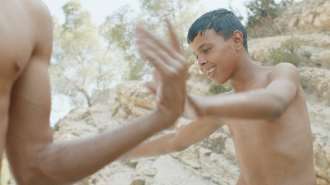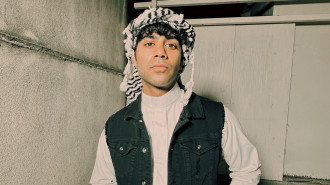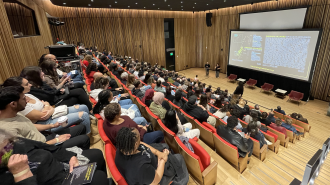Thirteen Months of Sunrise: A moving and rich portrayal of contemporary Sudan
Thirteen Months of Sunrise is the debut book by Sudanese author Rania Mamnoun, composed as a collection of short stories depicting different profound but everyday experiences of life in present-day Sudan.
In addition to being a writer, Mamnoun is also a journalist and activist and has two novels published in Arabic, Green Flash (2006) and Son of the Sun (2013). While this work of literature was written prior to the outbreak of violence in Sudan – where mass protests against the ruling generals have rocked the nation – it allows an inside perspective into the country, its people and their unique, but universally relatable experiences.
The stories woven in this work – originally written in Arabic and translated into English by Elisabeth Jaquette – primarily focus on diverse relationships that range from love that could never be, to toxic and unhealthy relationships, to witnessing the passing of loved ones.
The beauty of Mamnoun's storytelling is that while the pieces are short and relatively quick reads, they pull you into the narrative only to generally give you an ending other than the one that you anticipated or desired.
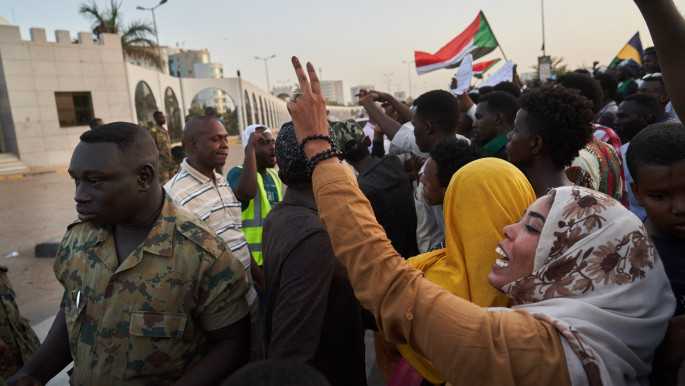 |
|
| Read also: Sudan uprising: Echoing the voices of the youth |
In the chapter titled Edges, she tells the tale of a new found love and the possibility surrounding it.
The relationship is paralleled by one that seems to be a female best friend of the subject, but ultimately turns out to be likely a figment of her imagination that is impeding on her life and sanity: "I don't know how I found her, or when. I didn't know anything about her. I wasn't sure of anything anymore."
Similar to the other stories, there is always this subtle unseen or undisclosed element of the narrative, that leaves the reader yearning for the knowledge of what came before and what will come after.
In the chapter titled In the Muck of the Soul, the issue of charity is highlighted and its limited ability in Sudan to help those in need of lifesaving healthcare, and other dire needs.
 |
The beauty of Mamnoun's storytelling is that while the pieces are short and relatively quick reads, they pull you into the narrative only to generally give you an ending other than the one that you anticipated or desired |  |
People often find themselves in situations where they are required to sell off their homes and other belongings, or are even pushed to the point of pleading with doctors to do surgery on a loan-type basis promising that they'll pay it back later (this is seldom agreed to).
Images of mothers with newborns camping out on dirt and cardboard with no promise of even being seen by charity workers creates a helpless narrative, and one that shines a light on the realities of those living in poverty in Sudan today.
Again, Mamnoun highlights relationships within the story, between family members working tirelessly to save their loved ones and the officials that cannot do much more themselves.
Doors tells the story of a father who, living in poverty, finally secures a job. The first half of the story details his persistence through the trials of even getting to work and trying to make himself look presentable despite having no running water, a shoddy piece of zinc as a bathroom door, and ripping his shirt on the bus door during the rush of people getting on board.
He marvels at the likely imported door at the office when he arrives, showing the stark difference between his own financial situation and that of the man he is going to work for.
Upon arrival to the director's office, he finds himself finally defeated and hopeless when an office boy breaks the news to him that the job was given to someone else: "He cried feverishly, in defeat, out of a sense of injustice, and he lay there, intermittently lifting his gaze, wishing for it to open or someone to look out. His wait stretched on, and the door stayed impassively shut."
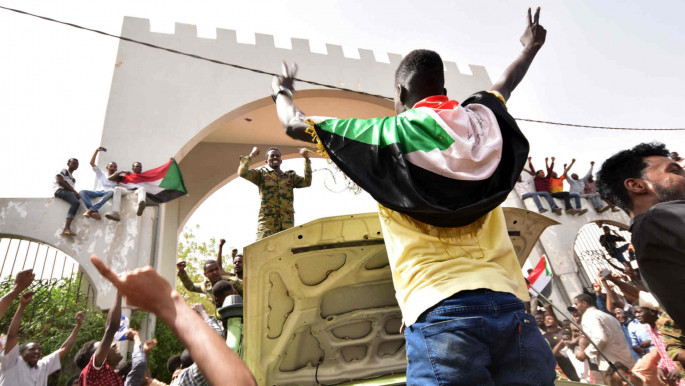 |
|
| Read also: 'A portal into tomorrow's Sudan': Inside the sit-in that brought down Sudan's dictator Bashir |
The author's writing style has such a way of building hope for the reader, only to remind them of the likely reality of these situations and how they might play out in real life.
These circumstances are not in isolation and only for a select number of people, but for many, both in Sudan and beyond.
This story particularly moved me, as it really allows you to empathise with the father doing all that he can to simply provide food and shelter for his family, but still coming up short through no fault of his own.
While the reader can hypothesise that there is light at the end of the tunnel and that another opportunity will come to him, it pushes them to feel that pain and struggle with him, without giving the satisfaction of a 'happy' ending.
 |
The author's writing style has such a way of building hope for the reader, only to remind them of the likely reality of these situations and how they might play out in real life |  |
The final chapter titled Stray Steps, tells a brief account of a girl on the brink of starvation, letting her body be used for even a morsel of bread.
Through all of her hardship and abandonment she experienced, in the end, the most 'humanity' she received was actually from a group of dogs who found her lying in the road and came to her aid. Although this individual's entire existence was focused on what she could consume in order to survive another hour, those around were able to walk idly by without a care or notice of her circumstances.
The narratives within this collection tell of brief encounters, long standing relations, and other seemingly everyday interactions that may have more depth to them than we perceive.
From the regular guests in shops, to the 'mad' old woman who sleeps outside the mosque – everyone has their own story and experiences that add value to a community.
Rania Mamnoun does a beautiful job of highlighting these individuals and their experiences in Thirteen Months of Sunrise, adding meaning to the mundane and bringing stories of struggles that many would not be able to imagine, to the forefront.
Karsen Breanne is a freelance journalist and full-time mother based in London. She has a BSc in Psychology and a MSc in International Politics, and her interests include MENA Politics, Culture, Religion, and Psychosocial dynamics.
Follow her on Instagram: @karsbreanne
The New Arab Book Club: Click on our Special Contents tab to read more book reviews and interviews with authors:





 Follow the Middle East's top stories in English at The New Arab on Google News
Follow the Middle East's top stories in English at The New Arab on Google News
